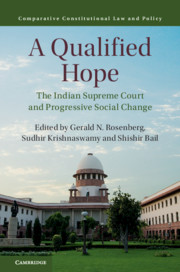While legal scholarship seeks mainly to assess the impact of climate change litigation (CCL) on the regulatory state and on climate change policy in common law countries, the potential influence of government climate policy on the judicial practices of jurisdictions with different legal traditions attracts much less attention. This article fills the gaps by exploring how courts in China, an authoritarian country with a civil law tradition, react to government climate policies and how this judicial response might affect relevant legal rules and eventually contribute to climate regulation. An empirical analysis of 177 Chinese judicial cases reveals that CCL in China consists mostly of contract-based civil actions steered by the government's low-carbon policies. Moreover, although the prospects of CCL against public authorities in China remain very bleak, there is scope for the emergence of tort-based CCL, backed by government policies. In this respect, recent tort-based public interest litigation on air pollution in China may serve as a substitute or, more promisingly, a gateway to the emergence of a tort-based branch of Chinese CCL.
